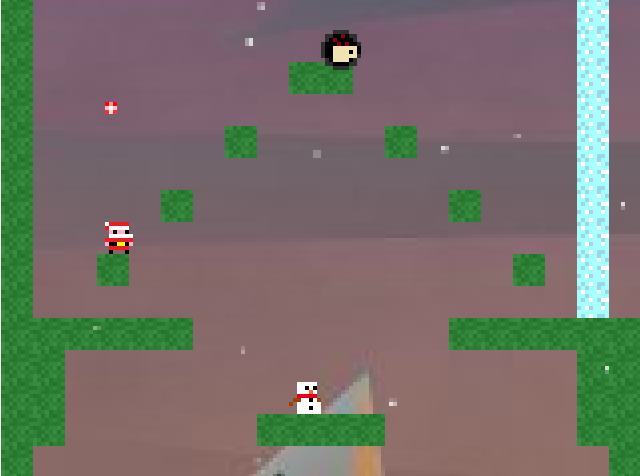This program will make all your games. Now what?

In his review of the new indie sensation Journey, Jamin Warren lamented the fact that many game developers now mistake “artistic value with realism,” thrust as they are with new technologies into an “artistic arms race to see who can stuff the most polygons on the screen, the most feathers on a bird, the most leaves on a tree, and so on.” The concern here is that technical process, in one way or another, is overshadowing artistic merit—the human component of games that actually evoke our passions and emotions when playing them even if we are distracted by the fancy graphics and big explosion on our screens. Technical prowess may become an entirely different matter soon, however, as Ars Technica reports of Ph.D student Michael Cook’s new project Angelina (short of “A Novel Game-Evolving Labrat I’ve Named ANGELINA”), a computer program that designs its own games:
According to a 2012 paper by Cook (PDF), the Angelina system draws on three species that evolve independently to create games. The first species, maps, determines “passable and impassable areas.”Layouts specifies the different entities in the world and the game player, and then rulesets defines the way the player’s obstacles will move. Angelina puts those categories together, then simulates a human playing the game 400 times to find glitches and problem areas that don’t work to cast aside. During these trials, Angelina also finds retaining levels that are considered “fun”: things that pose a challenge but then get easier. The most successful species are the ones that cooperate best with other species, so when those get grafted together you have a game by Angelina.
Cook points out this process is evolution, not learning. “Just like evolution in nature, the process isn’t really conscious of the overall direction it’s moving in. At each step, Angelina has a set of games to consider, and all it has to do is choose the best of this set, and combine their features together to make a new set,” Cook said in an email. Unlike, say, IBM’s Watson, every time Angelina wants to create a new game, the system has to start from scratch again.
At face value, this program sounds like it has the potential to push game design down the same path as modern journalism—turning large swaths of human writing into mindless “aggregation” that is ultimately performed better by computer programs anyway. But Angelina’s most useful task might be generating new ideas and situations for game design that still require the editorial presence of, well, people. She only designs the games, after all; all the artwork and polish is added in afterwards. Ultimately this may be able to generate more creativity and innovation in game design. Cook explained that with Angelina in her current state, he “hopes to get indie game developers using Angelina-type programs for their own creations.”
You can play some of Angelina’s games here.
–Yannick LeJacq
[via Ars Technica]



